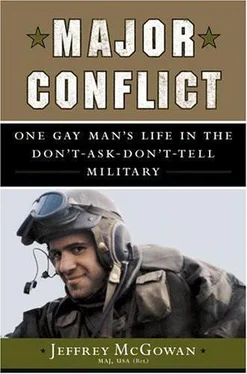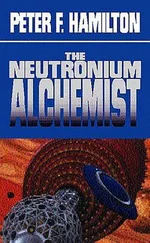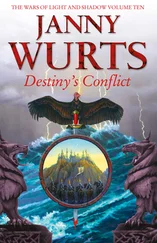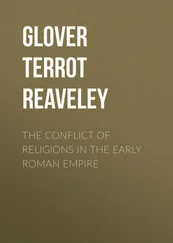Twenty families lived in the six-story apartment building in which I grew up. Everyone knew everyone else. I was often enlisted to help an older resident move a bureau or a sofa or to help someone bring laundry up from the basement. The other residents in turn kept tabs on me, gave me advice, asked about my grades, encouraged me in every way. In the evenings the hallways were always filled with smells of cooking: pot roast, curry, pasta sauce—a mélange of ethnic cuisines prepared in an effort to keep the bond alive with the home country. In the winters the radiators would hiss and knock, and the aroma of food at dinnertime would be even stronger. Coming out of the cold into the overheated hallway filled with the smell of home cooking was the best welcome in the world.
After St. Joan of Arc I went on to Archbishop Molloy High School, which I hated. I don’t think it was the school itself, it was just the idea of school, period. An indifferent student, uninterested in extracurricular activities, I cruised along in neutral, unsure what I wanted, unsure of myself. I hung around the neighborhood a lot, and went to an occasional school dance to meet girls from our sister school. But I felt awkward and clumsy at these and began to feel different from other people for the first time in my life. A chasm was beginning to open up, though I didn’t know it at the time, separating me from the rest of the world. So much has happened in the last thirtyfive years, and in the last ten years alone, that it’s easy to forget just how difficult things were back in the seventies for young gay men and for gay boys. That’s not to say, of course, that life is a cakewalk for young gay people today, but I’m not sure I even knew the word gay in 1979, when I was fifteen.
Like most teenage boys I did, however, know the words queer and faggot . When I was about thirteen, I got into the habit of hanging out in front of the building with a group of neighborhood boys, most of them older than me. I wanted to be cool. One summer afternoon we were out in the street playing stickball when a guy from the neighborhood went by on roller skates. He was in his early twenties, I guess, and seemed to go everywhere on his skates, usually in tight cutoffs and often shirtless. He had a perfect body. Looking back now, I feel pretty sure he was gay, though who knows? What mattered was that he was perceived that way by the super’s kid from my building, who felt compelled to spit on the ground as he rolled by and yell, “Queer!” with so much disgust in his voice that I jumped a little.
The guy turned his head back to us, looking a bit startled, and then raised his middle finger as high as he could and shouted, “Fuck you!”
The super’s kid rushed forward with the ball in hand. “What didya say, faggot?” he yelled, then threw the ball directly at the guy, just narrowly missing his head. The guy said nothing. He simply skated away and didn’t look back.
“Fucking faggots,” the super’s kid said, spitting again, and running up the street to get the ball. There was so much venom in his voice that I almost found myself wanting to defend the skater. But I kept quiet, knowing that defending a faggot was the fastest way to be banished from the land of cool. And besides, a large part of me actually agreed with the super’s kid.
So despite the changes that were taking place in the seventies, in San Francisco mostly, and in the West Village in Manhattan, for those of us still in high school then, it might as well have been the fifties or the sixties. The one gay character on prime-time television—on the series Soap —was a pre-op transsexual. The message was clear: male homosexuality was incompatible with masculinity, incompatible, even, with owning a penis.
And so I was clumsy and awkward at the high school dances, and I goofed around a lot. But I was absolutely convinced that I would one day marry a woman. I didn’t feel particularly feminine, so I couldn’t be gay. And I certainly didn’t want to lose my penis. I wanted to be a soldier so I couldn’t be gay because soldiers aren’t gay. Soldiers are masculine. That’s what I was learning, that’s what I internalized, and that’s what I’ve spent the last twenty years of my life attempting to exorcise.
CHAPTER TWO
Starbursts and Cigarettes
After graduating from Archbishop Molloy High School in 1982 I seriously considered joining the service. The idea of college was anathema to me. I wanted to have some adventure and see the world and get on with my life as a soldier. I went into a recruiting station one day just to look around, and one of the cadre talked me up and basically conned me into giving him my phone number. For the next few months I was inundated with calls encouraging me to sign up. I was torn. While I knew I wanted to be a soldier, I realized I wanted to be an officer and I’d need college for that. Unable to make a decision, unwilling to commit at the time, I decided the best thing to do would be to work for a little while. I figured that if I was going to continue living at home with my grandmother, the least I could do was to help her out financially.
I found a full-time job at the flagship Doubleday Bookshop on Fifth Avenue between Fifty-sixth and Fifty-seventh Streets, directly across the street from Trump Tower. The store’s been gone for years. Today the space is occupied by Prada, and if you watch The Apprentice , you can actually see it at the end of every episode, when the person who’s been fired comes down at the end and rides away in a cab.
It was a very special store in its time. A book superstore before superstores had been invented, with four floors of books and an exposed elevator in the center with a window that allowed passengers to look out onto the sales floor. In its own way it was considered a kind of literary landmark, the place where the rich and famous would come for their book needs when in the Big Apple. As a nineteen-year-old kid from Queens the experience was thrilling at first; I was easily starstruck. During my time there I met and waited on the likes of Mick Jagger, Keith Richards, Sylvester Stallone, Shimon Peres, Cher, Ed Koch, and many others. It was the place Imelda Marcos came for books. Her husband owned the adjoining building directly to the north. And it was the place where I met the first man with whom I had a relationship, though maybe “relationship” is stretching it a little, maybe “relationship” is stretching it a lot, but it was the closest I would come to one for a long, long time.
He didn’t start working at the store until the winter of 1985, when I was in between semesters in my freshman year at Fordham University. I’d applied to a handful of schools in the New York area in 1983 and was surprised when I received an acceptance letter from the well-known school. I hadn’t even taken the time to visit the campus up in the Bronx, thinking that my acceptance was such a long shot. Having spent so much time in Catholic schools I was attracted to the Jesuit tradition at Fordham, the phrase “homines pro aliis,” Latin for “men and women for others” jumping out at me from the school’s brochure.
Financing school was tough, though. Through federal grants and savings I was able to come up with the first semester’s tuition, but I’d have to commute. Fortunately one of the first things I did when I enrolled was to stop by the ROTC office on the campus. I learned about their scholarship program and decided to go for it. I’d have to prove myself first, though, maintaining at least a 3.0 GPA my first semester. That first semester was really when my life began to change. The two years off from school had apparently done me a world of good; I wanted to be there, and I wanted to learn. As a result, I ended up getting a 3.8 GPA, and I got the scholarship.
Читать дальше












